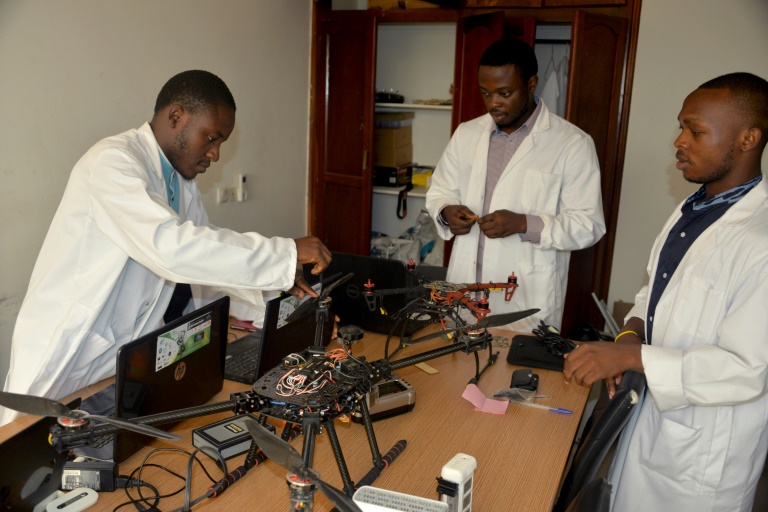24, January 2019
La Republique’s plan for a Francophone-led tech hub isn’t being welcomed in Ambazonia 0
The Cameroon government is backing a new technology hub to be called “Cameroon Silicon River” in its capital city Yaoundé, in a move that is likely to move attention from its small, but already thriving ecosystem in the country’s southwest region.
The new tech hub is modeled after Buea’s Silicon Mountain and will take a sizable portion of the 11.92 billion CFA francs ($ 20.6 million) 2019 budget of Cameroon’s ministry of scientific research and innovation. The government says Cameroon Silicon River will be a platform for research and innovation where young, creative, and enterprising Cameroonian software developers and other technologists will have the infrastructure and support they need.
But the news has not gone down well with tech leaders and entrepreneurs in Silicon Mountain; the already burgeoning tech ecosystem in Buea, in the English-speaking region of Cameroon. It is seen as the latest part of a wider national effort to marginalize the minority English-speaking regions of the country in the southwest and northwest.
For the last two years activists in the English-speaking regions of the country have protested against marginalization by the French-speaking dominated government. Modern Cameroon was formed from part of a former British colony and a much larger French colony, which makes up about 80% of the country’s population. But over the last year, those initially peaceful protests by Anglophone professionals, including lawyers and teachers, have turned into violent clashes with government security forces.
There has also been an information battle conducted mainly online. The government has taken to shutting down the internet for months in the English-speaking regions, ostensibly to prevent anti-government activists organizing.
Tech entrepreneurs in Silicon Mountain have often complained of systematic neglect by the government, citing specifically the lack of tax incentives for their tech start-ups and want of financial support.
Despite the difficulties, some Cameroonian start-ups in Silicon Mountain have received global acclamation and are being scaled up to spread across the world. These include Zuo Bruno (Zuoix)’s Zoomed car-tracking application using SMS and Churchill Mambe Nanje’s Njorku.com – a fast-growing job search engine and aggregator that helps thousands of African job-seekers find employment opportunities in locations nearest to them.
Bruno, an ethical hacker from Silicon Mountain, described the Yaoundé hub plan as a waste of resources. “I think it is a decision that assumes creativity and innovation can be taught and politicized.”
Many techies in Silicon Mountain say government officials often speak with them on how to improve the local ecosystem but their suggestions or proposals often end up being implemented in other parts of the country.
“We had proposed to officials that there was need to put in place an institution in Buea that will help startups in registering their ventures and scaling them up. Now we hear it is Yaounde,” said Otto Akama, co-founder of Makonjo Media. He indicated that same had been done with the creation of a technopole in Kribi, in the country’s French-speaking region.
Internet rights activist, Gwain Colbert Fulai predicted Cameroon Silicon River will die off in a relatively short timeframe.
“When you copy an initiative, you miss out the essential details. Even Silicon Valley in the US was not a government creation,” Colbert said. He argued government should only create an enabling environment for technology to strive.
Despite being Cameroon’s capital city, Yaoundé has few little-known tech entrepreneurs compared with Silicon Mountain. The entrepreneurs believe government should use the striving Silicon Mountain tech ecosystem as a springboard to build and expand other ecosystems in the country.
Source: Quartz






























30, January 2019
Electricity-hungry Cameroon boosts solar energy in push for rural power 0
Adrienne Ngonou’s 25-seat restaurant used to open from 8 am to 5 pm, shutting it doors as the sun began to go down. But these days it’s open until 11 pm – and her profits have tripled. “We now sell both during the day and late in the night because of the constant electricity supply,” she said. “Two years ago, this was not possible.”
Ngonou’s new power source is a government-provided solar array that supplies power to about 300 homes, businesses and other institutions in Mfou, a town of about 10,000 people east of Yaounde, Cameroon’s capital.
Earlier the area relied in part on grid power, which has been unreliable as more erratic rainfall and droughts linked to climate change hit the county’s hydropower dams, which supply the majority of its energy.
But the $13,000 battery-backed solar grid, installed in 2017, has given the area it serves 24-hour reliable power – and is now being replicated in other power-hungry parts of Cameroon, as the government tries to plug a stubborn energy gap and shore up its energy system against climate change, officials say.
Mfou’s solar system was part of a deal between Cameroon’s government and China’s Huawei telecommunications company, which also installs solar installations, to supply solar energy to more than 160 villages, largely in rural areas, they say.
So far solar power – much of it small-scale and often installed by non-governmental organizations – provides only about 1 percent of Cameroon’s energy needs, according to 2017 government figures. Energy expansion plans for Cameroon have focused largely on fossil fuel plants and hydropower expansion, mostly funded by China.
But now Cameroon’s President Paul Biya “has thrown his hefty political weight in support of renewable energy and this has brought a new stimulating perspective,” Martine Akame Mesumbe, director of gas exploitation at the Ministry of Water and Energy, told the Thomson Reuters Foundation.
The government hopes to boost Cameroon’s electricity access in rural areas as part of its “Vision 2035” development plan, aimed at expanding the economy and slashing poverty to 10 percent.
So far that expansion has been hampered by a lack of power, experts say. According to a 2018 World Bank report, just half of Cameroon’s people have access to electricity, with 80 percent of the supply concentrated in urban areas. Rural electrification is just 17 percent, it said.
As part of its push to change that, the government now aims to reach 1,000 communities – about 250,000 people in total – with solar power by the end of 2020, according to Mesumbe. Altogether it hopes to get electricity, from a variety of sources, to 40 percent of rural Cameroonians by 2020.
“This could drive significant economic change in rural Cameroon,” Mesumbe said. More than $120 million in funding for the push is coming from a Bank of China loan for renewable energy projects, he said.
MAINTENANCE?
Communities now hooked up to solar panels – like those in Mfou – say they are happy to have a cleaner and less costly source of energy. “It is a cheaper alternative to diesel generators and wood energy … used in the past to power small businesses,” said Roger Belinga, the mayor of Mfou.
Jarome Angwi, a beer vendor in the town, said solar energy to power his refrigerator and premises costs just a fifth of what he used to pay for diesel.
Local officials say they hope access to electricity will help keep young people from deserting rural areas for jobs in Cameroon’s cities.
In Mfou, “even some of those who left are already coming back” since the solar panels were installed, Belinga said.
Whether the new solar systems will be maintained, however, remains a question. Local authorities in some towns said they lack the funds to train local solar technicians.
“Many local councils do not have the financial resources to sustain these projects. They need financial support from government,” Rose Ngassa, the mayor of Tombel, in southwest Cameroon, told the Thomson Reuters Foundation in an interview in Yaounde.
But national government officials say an ongoing political decentralization push in Cameroon – including an expected 70 percent boost in cash transferred to local authorities in 2019 – should give local councils more money to invest in and maintain solar energy systems.
Greater use of solar power could also help cut worrying deforestation rates in Cameroon, home to part of Africa’s Congo Basin forests, environmentalist say.
“The cutting of trees for wood and charcoal used for cooking and heating will now reduce in many villages with the coming of solar energy,” said Augustine Njamnshi, the Cameroon-based coordinator of the African Coalition for Sustainable Energy.
Reuters